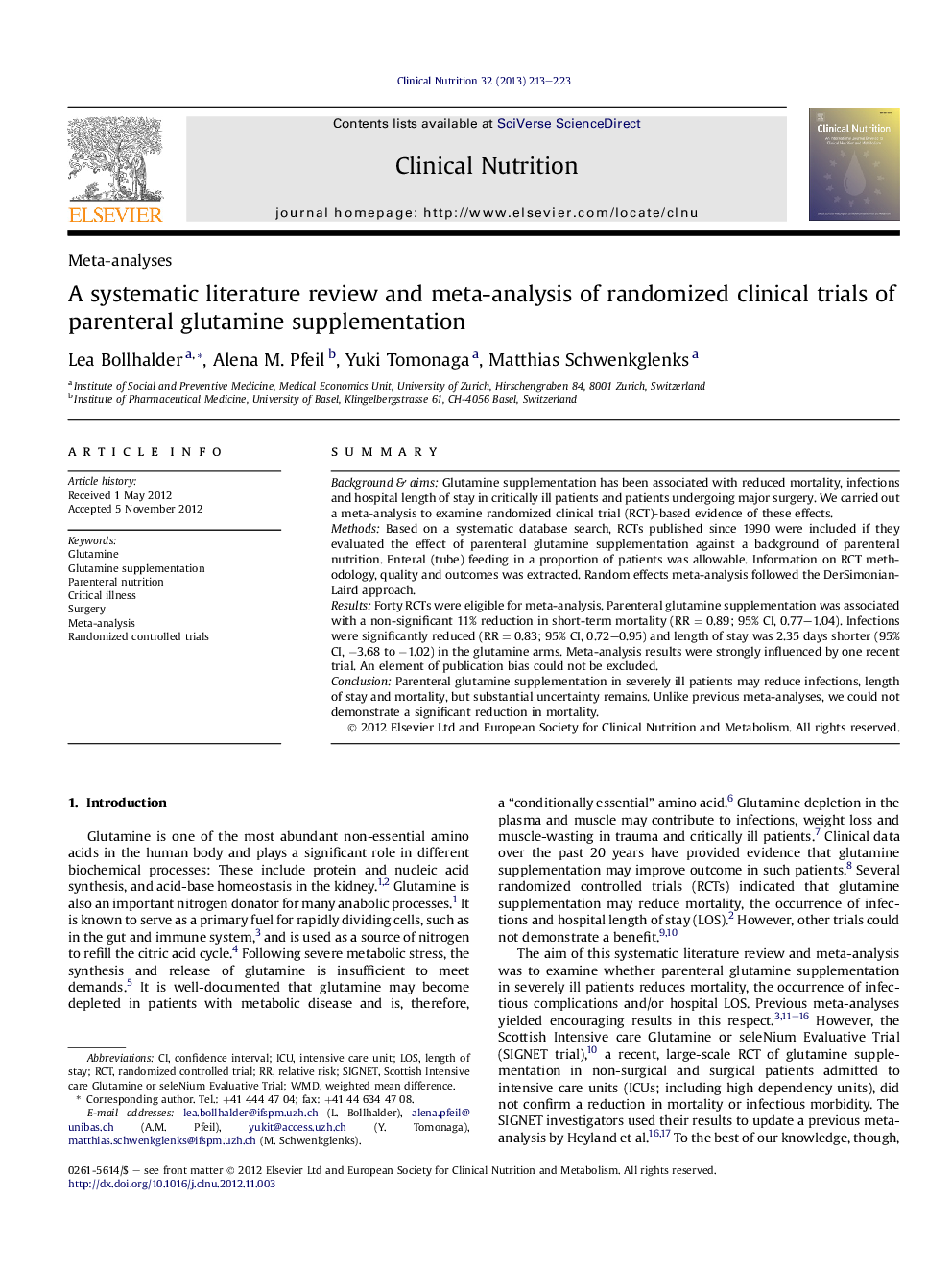| Article ID | Journal | Published Year | Pages | File Type |
|---|---|---|---|---|
| 2689743 | Clinical Nutrition | 2013 | 11 Pages |
SummaryBackground & aimsGlutamine supplementation has been associated with reduced mortality, infections and hospital length of stay in critically ill patients and patients undergoing major surgery. We carried out a meta-analysis to examine randomized clinical trial (RCT)-based evidence of these effects.MethodsBased on a systematic database search, RCTs published since 1990 were included if they evaluated the effect of parenteral glutamine supplementation against a background of parenteral nutrition. Enteral (tube) feeding in a proportion of patients was allowable. Information on RCT methodology, quality and outcomes was extracted. Random effects meta-analysis followed the DerSimonian-Laird approach.ResultsForty RCTs were eligible for meta-analysis. Parenteral glutamine supplementation was associated with a non-significant 11% reduction in short-term mortality (RR = 0.89; 95% CI, 0.77–1.04). Infections were significantly reduced (RR = 0.83; 95% CI, 0.72–0.95) and length of stay was 2.35 days shorter (95% CI, −3.68 to −1.02) in the glutamine arms. Meta-analysis results were strongly influenced by one recent trial. An element of publication bias could not be excluded.ConclusionParenteral glutamine supplementation in severely ill patients may reduce infections, length of stay and mortality, but substantial uncertainty remains. Unlike previous meta-analyses, we could not demonstrate a significant reduction in mortality.
